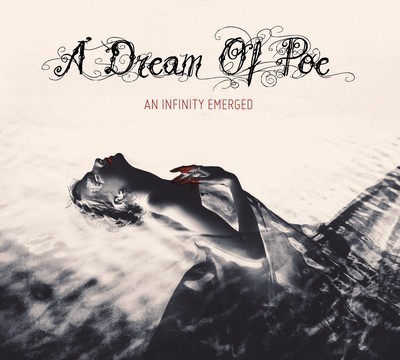- С этим товаром часто покупают...
- Просмотреть список опций
| КОД | Варианты альбома | Доступность | Цена | ||
|---|---|---|---|---|---|
|
|
SP. 110-15 x
|
В наличии
|
500.00 ₽ | ||
|
|
SP. 110-15D xs
|
В наличии
|
1 000.00 ₽ |
Новый альбом португальской группы A Dream Of Poe представляет развитие музыкального стиля группы от gothic doom metal, через мелодичный doom death к традиционной форме doom metal, с его чёткими торжественными рифами, чистым трагическим вокалом и эпичными партиями соло-гитары. «An Infinity Emerged» - это продолжение предыдущего альбома «The Mirror of Deliverance». Звучание альбома стало более плотным по сравнению с предыдущими работами и достигло нового уровня в плане качества записи, что позволяет лучше прочувствовать работу музыкантов и погрузится в атмосферу альбома. Пять длинных треков, со средней продолжительностью звучания в 11 минут, отражают эволюцию личности, осознавшей жестокость реальности по сравнению с теоретическими измышлениями. Символически, альбом представляет собой процесс разрушения, как начальный этап процесса обновления (что соответствует символизму карты «Башня» из колоды Таро), поэтому темы смерти, убийства, и постоянное обращение к воде как символу изменения являются основными для «An Infinity Emerged». Партии клавишных на альбоме исполнил Костас Панайоту (Pantheist, Clouds, Wijlen Wij).
Первые 100 экземпляров альбома изданы в виде строго лимитированного диджипака!
Треклист:
1 Egregore 11:20
2 Lethargus 11:17
3 The Isle Of Cinder 10:19
4 Lighthouses For The Dead (The Isle Of Cinder II) 10:27
5 Macula 11:30























































